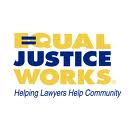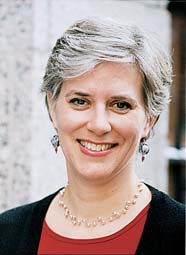Interview with EJW Fellow Stephen Reba
Stephen Reba is an Equal Justice Works Fellow (Class of 2009) working with the Barton Juvenile Defender Clinic at the Emory University School of Law. He is a native of Decatur, GA and is a 2008 graduate of Atlanta’s John Marshall Law School. Reba spent the year before his fellowship working with abused and neglected children and on the issues that affect them. His project, Appeal for Youth, seeks reform in Georgia through the holistic appellate representation of youthful offenders in our juvenile and criminal justice systems.
Tell us a little bit about your proposal process. What made you want to try for an Equal Justice Works fellowship? How did you select your sponsoring organization?
My project, Appeal for Youth, provides holistic, post-conviction representation to youthful offenders in Georgia’s juvenile detention centers and prisons. We wage legal battles to free our clients from secure detention and to ensure fair and humane treatment during their incarceration. In doing this, we often associate private attorneys from some of Atlanta’s largest law firms to help take on the fight for these youth.
When I initially came up with the general idea for the project, I went to the director of my now host organization (where I interned as a rising 2L) to make a pitch. After agreeing to serve as host, we brainstormed about funding. Considering our target group was youthful offenders who committed serious and often violent offenses, we needed a funding source that truly cared about justice and was willing to focus on an (unsympathetic to many) underserved population. An Equal Justice Works fellowship was our first thought.
In crafting my Equal Justice Works proposal, I had multiple meetings with my host organization where we hammered out details and logistics. Throughout this joint process, the project came to life.
How does this fellowship fit with goals you had in law school or before? Is this the sort of work you envisioned yourself doing?
Both as a law student and as a lawyer following law school, I worked with youth in Georgia’s child welfare system. My current project is derived from that work and the often seamless progression of foster children into our juvenile and criminal justice systems. Through my work as a law student, I knew that I wanted to practice in the area of public interest juvenile law.
What is a typical day like in your fellowship? Is there such a thing as a typical day?
A typical day in my fellowship brings me to middle and south Georgia. The vast majority of our juvenile detention centers, prisons, and consequently, habeas courts, are in rural Georgia. With a large caseload and a project driven by attorney-client contact, I spend much of my time on Georgia’s country roads, zipping by pecan trees and churches on my way to or from a client visit or court appearance.
Where do you see yourself in the future? What roll you think your fellowship might play in your professional trajectory, going forward?
Through Appeal for Youth, we’ve created a project that fights for kids who have been discarded by our system. We’ve not only won the release of many clients, we’ve also established partnerships that place our clients in a position where they can successfully reintegrate into our communities. In my view, no policy or legislative reform can bring about the same level of systemic change that begins on the ground. Equal Justice Works has enabled me to begin the fight for systemic reform in Georgia, and I plan on fighting until it’s won.
What would you say are the 3 most important pieces of advice for rising 3L’s who are putting together their fellowship applications? What about for students trying to decide if the program might be right for them?
The most important piece of advice I can offer is collaboration with your host organization during the application process. This partnership allows you to shape your project idea, which is essential to a strong application. Next, I suggest that you begin the application process sooner rather than later. If you’re going to meet and draft, meet and draft, you’ll need time. Finally, be passionate. If you’ve taken the time to come up with a project that will impact a group of people you care about, you clearly care. Let that passion show!
As an aside: Tell us a little bit about your work for the Juvenile Justice Information Exchange. How did you end up writing for them? What has your experience been like?
I hooked up with the Juvenile Justice Information Exchange because they were looking for a voice working with youthful offenders. I’ve used that opportunity to tell some of my clients’ stories. I’ve enjoyed being able to venture outside of legal writing and to focus on aspects of my clients’ childhoods for which there is no other forum. I’m privileged to be a part of the great work JJIE is doing.
Permalink Comments off


















































































